So I made this:
Still. I like it. And because I'm like a four year old who always wants to show you what he's made, even if it's a mud pie that he wants you to eat, here it is: I made this.
|
It's usually a good idea to pander to your strengths in whatever you do. And I feel that, as a writer AND an editor, I have some pretty cogent things to say about how to get things done with writing. I see the same kinds of mistakes all the time. Like ya, know. Whatever. So I made this: Of course, if I'm trying to help out with site traffic, who's this for: other writers, the very people to whom I already have a surfeit of access. Go on my twitter account and they're always there, yelling at me to take their free books and then never read them so they can feel good about meaningless numbers on their Amazon pages. Still. I like it. And because I'm like a four year old who always wants to show you what he's made, even if it's a mud pie that he wants you to eat, here it is: I made this. Take my mud pie, internet. Take my filthy mud pie and you like it.
0 Comments
Lately I've been privileged to be in the company of some fine quality writers, a few of whom I'll be happy to showcase on weekends. Enjoy. Not A Whisper |
| Donna B. McNicol retired after 30+ years in the IT industry. In 1996 she started moonlighting in freelance writing; she spent the next ten years writing for such online sites as The Mining Company, Suite101, BellaOnline and About.com. In 2005, a year into widowhood, she decided to ride the 48 continental US states on her Harley-Davidson motorcycle, solo. She managed to ride through 42 states, covering over 27,000 miles. In 2006 she decided to try her hand in the world of blogging. She now maintains several blogs on varying topics including her writing and an upcoming two month motorcycle ride via Route 66. Donna currently lives and travels full-time with her husband, Stu, and their pup, Sadie, along with their two Harley-Davidson motorcycles in a 41' fifth wheel toy hauler trailer pulled by their medium duty Freightliner. |
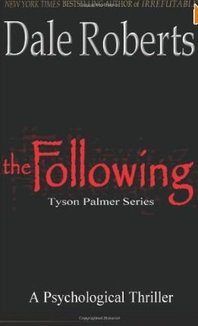
“ I felt sort of unhinged as I tried to figure out what was real and who were the good guys/bad guys. ” LM
“ I look forward to more books by Dale Roberts, who is quickly becoming one of my favorite authors. ” Nick Russell | 1 reviewer made a similar statement
“ The details, the characters, the dialogue, the plot, they are all well drawn. ”
| In the past 22 years I have been a firefighter/paramedic, flight paramedic, police officer and ER nurse. I thought I had seen everything imaginable until my wife asked a "what if" question. I pondered it for a while and decided the idea would make a great book. IRREFUTABLE was my first novel. Many thanks to my readers who have made this dream a reality. |
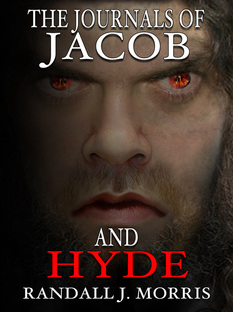
"Has all the technology and adventure I like in a short story/novel."
| I was born very close to Death Valley in California, but I grew up in Seattle, WA. I've loved reading and writing since I was a little kid and it's what helped me choose to pursue a bachelors degree in history. I've worked for Best Buy / Geek Squad for the past five years. I served as a missionary for two years in the Philippines and I speak Tagalog fluently. I love to travel and I tend to incorporate places that I've been and experiences that I've had into my writing. I plan on publishing short stories and history articles. |
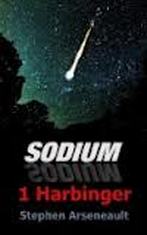
“ I found this book to be a fun read. ” RadRob | 2 reviewers made a similar statement
“ This was a very original story that had an unpredictable plot. ” Bruce N Humphrey | 4 reviewers made a similar statement
“ The writing was direct and clear without a lot of frivolous details. ” Tom G | 1 reviewer made a similar statement
| I took up writing in 2011 for fun and have since been hooked. Self publishing is a blast. Aside from eBooks my writings are also available in print from my web site http://www.arsenex.com. If you are so inclined, I enjoy feedback. Please send any comments to comments@arsenex.com. If you choose to read any of my works I sincerely hope you enjoy them. If so, please come back and leave a review! |
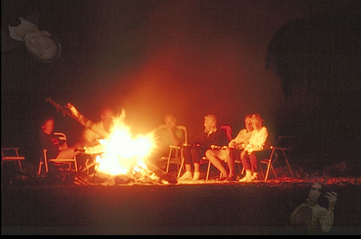

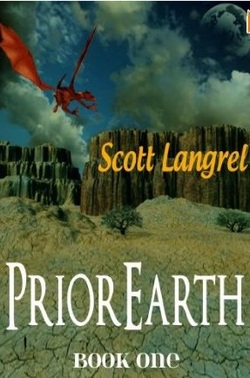
"PriorEarth Book One starts out with my kind of fantasy, magic of old, and hints of times long forgotten."
"...the author's style of storytelling drew me in and made me want to read the entire story; as he is working with an intriguing twist on the genre."
| I was born and raised in Big Stone Gap, Virginia, a town nestled in the mountains of Appalachia. Which, by the way, is pronounced "apple-atcha", not "a-puh-lay-shua". My favorite TV shows as a kid were "Kolchak: The Night Stalker" and "Night Gallery" with Rod Serling. I was also drawn to books with larger-than-life heroes such as Doc Savage and Robert E. Howard's Solomon Kane. I was (and still am) a big X-files fan, along with Lost, Supernatural, and The Walking Dead. I prefer horror and thrillers where there is a real, supernatural villain as opposed to psychological horror, and I try to incorporate such characters into my stories. |

“ I recommend this book to anyone who enjoys mystery and suspense. ” Janet | 12 reviewers made a similar statement
“ This story will not disappoint as it sucks you right into these lives from page one and doesn't let go until the last page is turned. ” D. Everetti | 10 reviewers made a similar statement
| RETIRED ENGLISH PROFESSOR WRITES FICTION - mysteries, thrillers, and humorous fiction I have resided in and have visited many places in the world, all of which have contributed in some way to my own published writing. I have literally traveled throughout the world, on numerous occasions. I have lived in Finland, Germany, Thailand, Saudi Arabia (where COVERT DREAMS is set), and the U.S. Virgin Islands (where DEADLY EYES is set). I gained the wanderlust to see the world, to experience other cultures, at an early age, and this desire has never left me. If anything, it has only gained in intensity as I have aged. I try to travel internationally at least once a year. In the interim, I spend lots of time traveling around both my home state of California and other nearby states. |
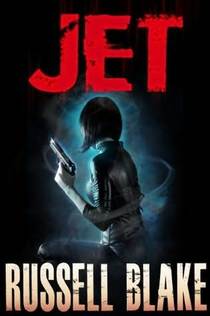
“ Well written fast paced action book. ” RUTH DODD | 50 reviewers made a similar statement
“ This is the first Blake book I've read where the main character is a woman, and he did an excellent job of writing in her voice. ” GAE-LYNN WOODS | 23 reviewers made a similar statement
“ 5 stars - Kate Farrell, The Kindle Book Review (The KBR received a free copy of this book in exchange for a fair and honest review. ” The Kindle Book Review | 5 reviewers made a similar statement
| Russell Blake is the bestselling author of eighteen novels, including the thrillers Fatal Exchange, The Geronimo Breach, Zero Sum, King of Swords, Night of the Assassin, Revenge of the Assassin, Return of the Assassin, The Delphi Chronicle trilogy, The Voynich Cypher, Silver Justice, JET, JET II - Betrayal, JET III - Vengeance, and JET IV - Reckoning. Non-fiction includes the international bestseller An Angel With Fur (animal biography) and How To Sell A Gazillion eBooks In No Time (even if drunk, high or incarcerated), a parody of all things writing-related. Blake lives in Mexico and enjoys his dogs, fishing, boating, tequila and writing, while battling world domination by clowns. |
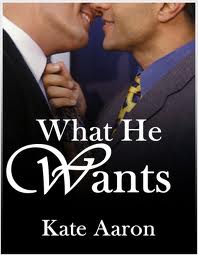
“ What He Wants was soo sweet I smiled through the entire reading.. ” P. Conway | 2 reviewers made a similar statement
"I was very pleased to discover that instead this was a very good contemporary novel, an old fashioned office romance, and a story that well develops the relationship between Christo and Damien."
| Kate Aaron lives in Cheshire, England with two dogs who won't behave, a parrot that won't talk and a bearded dragon named Elvis. She has the best of friends, the worst of enemies, and a mischievous muse with a passion for storytelling that doesn't know the difference between fact and fiction. |
| 1: Why do you write? If I had to give a reason for why I write, I would have to say, Because I’m good at it. | That's one shot, everybody! |


"Great writing, story and imagery. Enjoyed all the detail and visualization while reading. Loved this book, could not put it down once I started reading it."
"This book has a little something for everyone. I strongly suggest this book to anyone who enjoys a fantastic read that is guaranteed to keep your attention until the very last word."
| Shirley Bourget is a Marketplace Premiere writer for an online content source and has earned the Silver Star rating for her creative writing. She writes Freelance Articles as well as Paranormal Suspense and Romance. She lives in South Carolin with her husband and has two grown children and one beautiful grandchild. When Shirley isn't writing, she enjoys painting, photography, and hiking. To learn more, you can follow her on Twitter - http://twitter.com/ShirleyBourget or visit her website http://www.ShirleyBourgetFreelanceWriter.com or visit her Author page http://www.facebook.com/pages/Shirley-Bourget/153900874721684 |
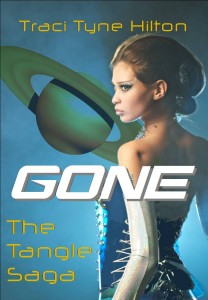
"I have to say, this is a keeper. I liked Verity. She was tough without having that over-the-top persona that some heroines have and fun to read."
"As fun as the plot and descriptions of the space station are, the characters are the best part of this book."
| Traci Tyne Hilton is an award winning author and playwright from Portland, Oregon. She is madly working on her next mystery series which has finaled in the Books of Hope Contest at Write Integrity Press and has an impending deadline. The same book just won the Mystery/Suspense category in the Christian Writers of the West Phoenix Rattler Contest, see all the winners here: http://christianwritersofthewest.weebly.com/phoenix-rattler-contest-winners.html/ Traci has a BA in History from Portland State University and lives in the rainiest part of the Pacific Northwest with her husband the mandolin playing funeral director from Kansas, their two daughters, and their dog, Dr. Watson. More of Traci's work can be found at tracihilton.com |

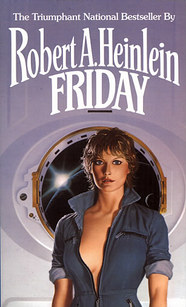
| Nothing else. That's it. So what followed were a lot of books that combined the two, often inelegantly, and in go-go skirts, while sort of ... flying through the cosmos. Usually, much like Friday, I couldn't coax myself into buying the more flagrant offenders, but I still have a few fine examples of: | Please pardon the quality of some of the pictures. I was learning how to use a new camera. |
As shown in its predecessor novel, The Caves of Steel, Earth also appears to have evolved an unusual society, in which people spend their entire lives in confined (or "cosy") underground interlinked cities, never venturing outside. Indeed, they become utterly panicked and terrified when exposed to the open air and the naked sun.
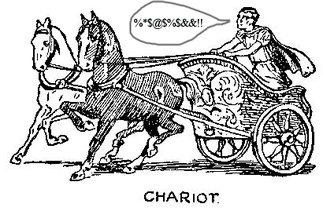
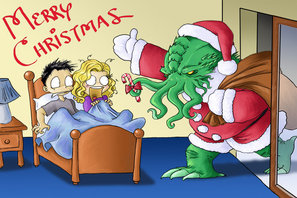



| Once again, I've thrown my philtrum into the fray. The last time I did so, I grew such a disgusting flavour saver that people stared at me in the grocery store, my friend's dogs whimpered whenever I entered the room, and my own mother blocked me on Facebook. | Oh, what glee I take from using correct words that the spellchecker flags. |
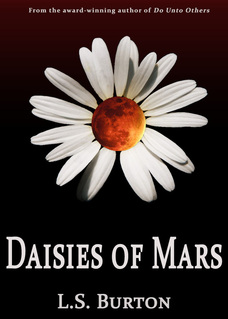
| Often, with your pet words, you don't realize you're using them so frequently until somebody points them out, and then alakazam! they fade into existence like an image from one of those Magic Eye pictures. I've used the word 'schooner' 141 times. Maybe I should change them all to 'sailboat?' Either way, that's not what this post is about. Today, while searching for a few of my own pet words, I strayed from the set course and searched for 'the's. Yes, the word 'the.' A LOT came up. Obviously, I was expecting a lot, but as I hadn't really thought it through, the volume came as a bit of a surprise. Let's see, in Systematic Rube a non-fiction piece of 101,503 words, there's 8264 'the's. That's like ... 8% of my words. | To do so, using Microsoft Word, select CTRL F to bring up the Find/ Replace and input the word you wish to find. Then, on the bottom, where it says Reading Highlight, select the arrow and choose Highlight All. It will then tell you how many times you've used that word in your piece. |

| It amuses me that the little corner book shop that sells magazines and local literature has a rotating rack of 50 Shades of Gray. The rest of the shop is quaint, family-oriented. Right next to the spindle of erotica is a huge display of spritely stuffed animals. I caught the eye of a kid right after I caught him on his tip-toes to sneak a better look at the plastic-wrapped magazines on the top shelf. A grin there. He scurried off. Used to be that I'd come home from university and I'd be able to tell who was also coming home from away by what they were wearing. It was easy. People in my town were about five years behind the popular fashion trends of the rest of the country. Today, I realized this was no longer the case, and I lamented that the outside world had found us, that we'd greedily snatched up all the shiny beads we could carry. After all, isolation breeds diversity, identity. Quick on the heels of that thought I realized that I've been in the province going on five years. Maybe it was still the case that we were behind the rest of the country, and I was now five years out of date myself.... A bit of a gangly hope, that one. Fleeing the mall, I saw a sign in the parking lot that read "Reserved Parking," with an arrow pointing down a lane. I followed the arrow and, when I got to the back, was very amused to see that the reserved parking was a large unpaved square, dusty and rutted. | It's been said that it's great that I can make money doing something I love - sorta - and, obviously, gravitating towards books in public when I'm trying to escape books at home gives credence to this point. But, to make a fine distinction about it, I would have to compare it to a doctor who's always been a fan of the human form. It might be what he loves, but most of the time he only sees the human form when something's terribly wrong with it. He then has to cut it open and try not to lose his wristwatch inside. |
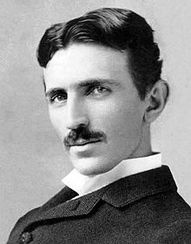
| Literary stories, they sneer -- Boring garbage! Maybe. But not as easy to write. Layers, my friends, layers, interconnected like a cat’s cradle. Pinch the wrong damn strings and it all unfurls into a useless yarn. Eat my puns, better technical writer. |
| In fact, I left my house this evening, needing supplies to feed my keyboard, and I was no beautiful butterfly emerging from a cocoon. More like a mole blinking in the sunlight after a long hibernation. Strolling to the store, nothing seemed real to me -- not the leather-clad lady with her bare midriff and peanut-shaped body buying cigarettes -- not the wobbly trees of Bannerman park -- not the August cool-down of the evenings on my arms. I could have closed my eyes and forgotten it all. It is a cliché of art that the artist gets so wrapped up in their created work that the created work seems more real than the world -- enough bad science fiction has played with the concept that I mentally throw popcorn at the idea when it pops up. And, initially, I laughed at myself. I certainly didn't want to stumble myself by giving that cliche any leeway. |
| But ... (A bit of a digression) |
| When I used to merely write – often only with the simple goal of being able to esteem myself a writer one day – the good ol' days -- the naive ol' days -- I used to happily close my writing sessions with finality – DONE. Laptop shut with a satisfying click, there was a succinct severing of ties. The next morning, I’d pick up where I left off. These days, being done with writing for the day means the start of making content. No fulfilling click signalling a return to the world. | Not as simple as the mere act of writing. I can do math; that doesn’t make me a mathematician. |
| End of Digression Of course, I must point out that I am the worst kind of hypocrite. Because what’s the first thing I’m going to do once I’ve applied the spit-polish to this piece? That’s right, I’m going to post it. I’m going to make it into content. And I’ll be content if someone were to read it. Marvel at my perspicacity and ironic outrage. |
| By that, I mean, in my head I took a snapshot of them, only briefly, and I then brought that snapshot very near to me and I explored it. In a flash, I crawled all over the outsides of those buildings, feeling the gritty splintering of the wood, the bumps and the striations. I flew through the houses, circling the occupants like an intruding wasp, then shrank myself down to ant-size and stared up at the houses, like monoliths, getting in close to see the chips in the paint on their front doors, grass growing up through cracks in the concrete. |
 Farewell, third person bio.
Farewell, third person bio.
March 2014
February 2014
January 2014
October 2013
September 2013
August 2013
July 2013
May 2013
April 2013
March 2013
February 2013
January 2013
December 2012
November 2012
October 2012
September 2012
August 2012
July 2012
All
Anthropology
Article
A Thought
Attempted Wit
Book Covers
Books
Ebooks
Excerpt
Funny
Grammar
History
Interview
Literary
Lovecraft
Newfoundland
Popular
Published Piece
Saturday Showcase
Science
Science Fiction
Short Story
Systematic Rube
This Land
Video
Writing